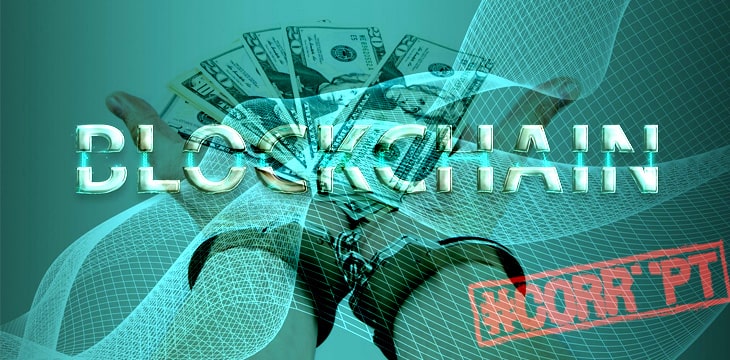|
Getting your Trinity Audio player ready...
|
Blockchain can be a potent tool in preventing government corruption, leading to greater transparency, automation and auditability.
According to a report by the World Economic Forum, blockchain has a key role to play in improving governance, and in preventing corruption in a range of public administration settings.
In a post co-authored by Rachel Davidson Raycraft of the University of Virginia School of Law, Batten School of Leadership and Public Policy and Ashley Lannquist, Project Lead on, Blockchain and Distributed Ledger Technology at the World Economic Forum, the World Economic Forum set out five use cases for blockchain in keeping governments honest.
The public procurement use case could enable direct action on risk factors in procurement, with automated contracts and immutable records combining to deliver better, less corrupt procurement across government departments.
Land registration is becoming an increasingly popular use case for blockchain, allowing secure, publicly verifiable, permanent records of land ownership and title. Being written to the blockchain means records are less susceptible to tampering and manipulation.
The same extends to electronic voting conducted on the blockchain, which can reduce corruption and electoral fraud. By creating a permanent and transparent voting infrastructure, blockchain technology can increase electoral integrity and transparency for more effective results.
Beneficial corporate ownership is being monitored more keenly in countries worldwide in recent years, as a means of detecting fraud and illegal activity. By creating and storing records of corporate interests on a blockchain, authorities can maintain more effective records, while better identifying suspicious signals from the data.
Finally, the report says governments could use blockchain for handling the disbursement of grants, such as those in support of the arts, education and other social goods. Again, transparent, public records limit the scope for corruption and fraud, helping build faith in the grant awards model.
Five of many envisaged use cases, in practice governments around the world are already making the most of blockchain in improving transparency and efficiency of administration.

 02-07-2026
02-07-2026 




